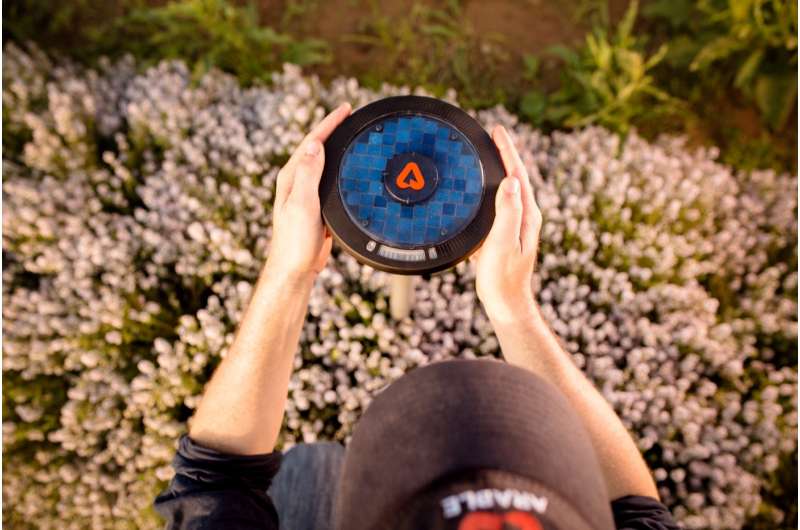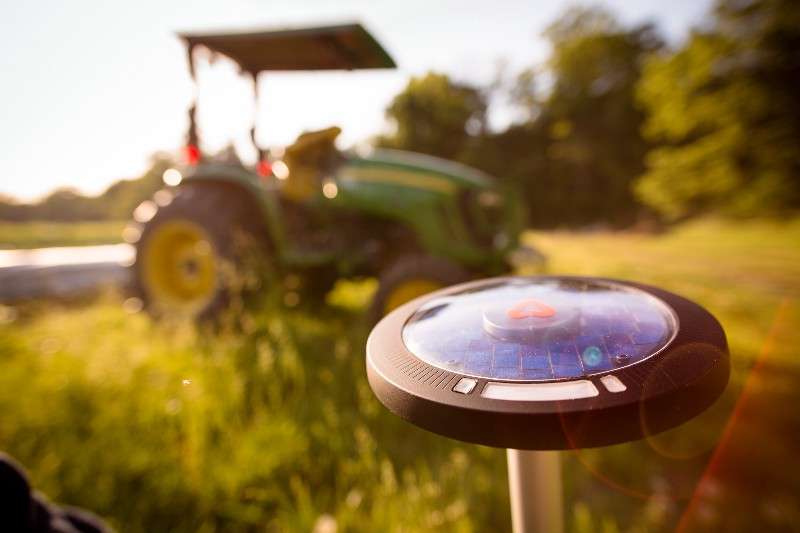July 19, 2016 report
Arable announces Pulsepod—an inexpensive field sensor that watches plants grow

(TechXplore)—Arable Labs Inc., has announced the debut of a new device it has invented that is meant to help farmers grow crops in third world countries. Called the Pulsepod, the small Frisbee-shaped device houses technology for gathering 40 observation streams that are related to plant growth, soil and weather conditions.
In order to help farmers grow their crops, scientists have been developing new tools that monitor every conceivable factor present in the environment. Unfortunately, such technology is generally not available to farmers in third world countries. The Pulsepod is meant to bridge that gap by providing a wide variety of sensing options at a much lower price.
Growing crops has become a highly technical business due to the huge demand—billions of people the world over rely on the crops that farmers grow and the numbers keep climbing. In addition to rain data, farmers need data on how well their plants are growing so that they know if they need assistance, such as different fertilizers or pesticides depending on circumstances. The makers of the Pulsepod hope to provide that for any farmer that needs it.
The device has three main types of sensor, the first of which is the acoustic disdrometer, which the team invented in-house. It measures rainfall by noting the size and number of drops that fall on the face of the Pulsepod.

The second type of sensor is the net radiometer. Its purpose is to determine how much sunlight the plants around it are receiving. It achieves this by measuring shortwave radiation coming directly from the sun and long wave radiation, which is sunlight that has been reflected back by the plants. Monitoring both allows for calculating how much energy the plants are getting from the sun.
The third type of sensor is a spectrometer, which is used to monitor how well the plants are actually growing. It determines this by measuring narrowband reflectance of sunlight and allows for determining growth of crops, water use and the amount of chlorophyll in the plants.
All of the data from the Pulsepod is sent to the cloud via Wi-Fi, cellular and/or Bluetooth—it also has a GPS device. Farmers can access the data and reports created by Arable that make sense of it all via the Internet, allowing them make decisions about watering, fertilizing, weeding, etc.
Arable has begun taking preorders for the Pulsepod with a price of $500.
More information: www.arable.com/
© 2016 TechXplore

















